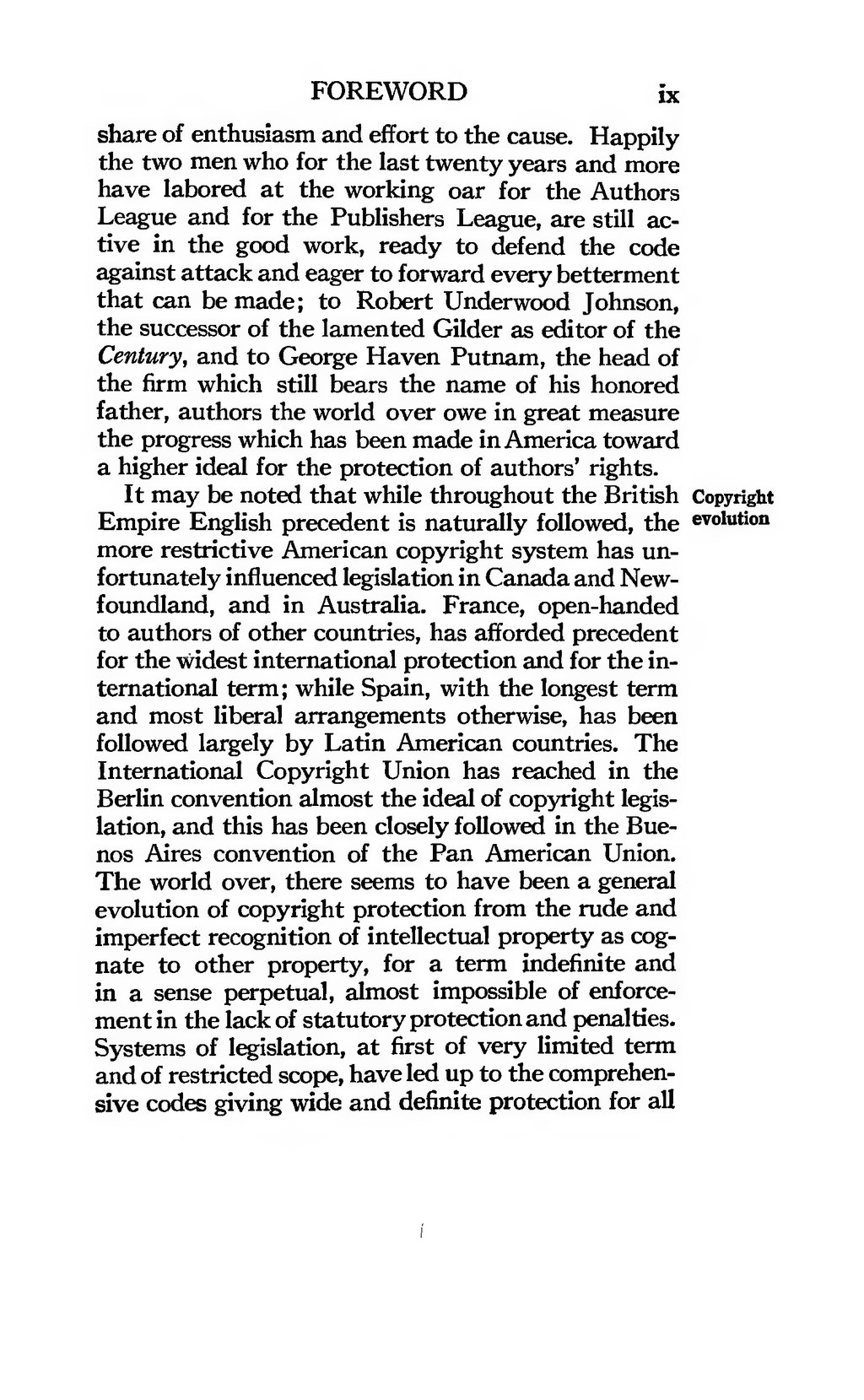FOREWORD
ix
share of enthusiasm and effort to the cause. Happily the two men who for the last twenty years and more have labored at the working oar for the Authors League and for the Publishers League, are still active in the good work, ready to defend the code against attack and eager to forward every betterment that can be made; to Robert Underwood Johnson, the successor of the lamented Gilder as editor of the Century, and to George Haven Putnam, the head of the firm which still bears the name of his honored father, authors the world over owe in great measure the progress which has been made in America toward a higher ideal for the protection of authors' rights.
Copyright evolutionIt may be noted that while throughout the British Empire English precedent is naturally followed, the more restrictive American copyright system has unfortunately influenced legislation in Canada and Newfoundland, and in Australia. France, open-handed to authors of other countries, has afforded precedent for the widest international protection and for the international term; while Spain, with the longest term and most liberal arrangements otherwise, has been followed largely by Latin American countries. The International Copyright Union has reached in the Berlin convention almost the ideal of copyright legislation, and this has been closely followed in the Buenos Aires convention of the Pan American Union, The world over, there seems to have been a general evolution of copyright protection from the rude and imperfect recognition of intellectual property as cognate to other property, for a term indefinite and in a sense perpetual, almost impossible of enforcement in the lack of statutory protection and penalties. Systems of legislation, at first of very limited term and of restricted scope, have led up to the comprehensive codes giving wide and definite protection for all
